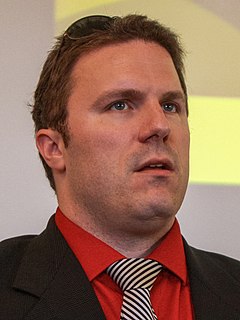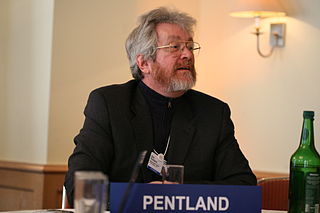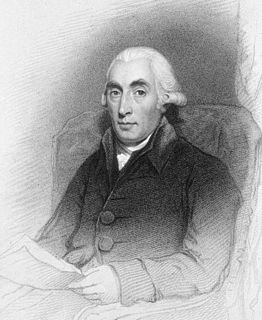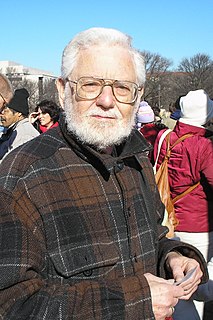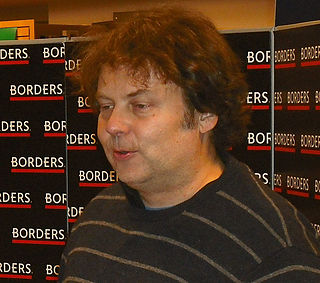A Quote by Nicole Krauss
Why are we so addicted to factual knowledge? Why are we so uncomfortable with the unknown? Is it something about the anxiety of our time? Because of course that wasn't always the way. Even now the whole idea of the rational individual has been subject to question and yet we still cling to this idea of factual, rational knowledge being more valuable than whatever its opposite might be.
Related Quotes
Philosophy is not a body of knowledge to impart to someone, that's why reading philosophy books isn't always the best way of learning philosophy. Philosophy is really more the process of rational engagement, rational reflection with a diversity of views and ideas and opinions and trying to sort of reason your way through to a more reflective position. I think if you look at it that way, philosophizing is to some extent some small way a part of almost everyone's lives although they don't recognize it as such and a lot of people are embarrassed about it.
I'm skeptical about even educating voters as a chance for being successful. You know, when we look at what people retain from high school a year after they've graduated, they've forgotten most everything about history and civics and everything, and I think the main worry here is that because your individual vote counts for so little, you just don't have a strong incentive to invest in the knowledge, to retain the knowledge, to process information in a rational way.
Near the end of the 1700s, philosophers began to declare that humans were rational individuals. People were flattered by being recognized as individuals, and by being called rational, and the idea soon wormed its way into the belief systems of nearly everyone in the upper class. Despite resistance from Church and State, the idea of rational individuality replaced the assumption that truth comes only from god and king.
But the idea of science and systematic knowledge is wanting to our whole instruction alike, and not only to that of our business class ... In nothing do England and the Continent at the present moment more strikingly differ than in the prominence which is now given to the idea of science there, and the neglect in which this idea still lies here; a neglect so great that we hardly even know the use of the word science in its strict sense, and only employ it in a secondary and incorrect sense.
I would simply ask why so many critics, so many writers, so many philosophers take such satisfaction in professing that the experience of a work of art is ineffable, that it escapes by definition all rational understanding; why are they so eager to concede without a struggle the defeat of knowledge; and where does their irrepressible need to belittle rational understanding come from, this rage to affirm the irreducibility of the work of art, or, to use a more suitable word, its transcendence.
Upon the whole, Chymistry is as yet but an opening science, closely connected with the usefull and ornamental arts, and worthy the attention of the liberal mind. And it must always become more and more so: for though it is only of late, that it has been looked upon in that light, the great progress already made in Chymical knowledge, gives us a pleasant prospect of rich additions to it. The Science is now studied on solid and rational grounds. While our knowledge is imperfect, it is apt to run into error: but Experiment is the thread that will lead us out of the labyrinth.
I think that the whole idea of ‘no regrets’ was always a silly idea to me, because of course I regret all the places I went wrong, but that’s what creating anything, and being human, is all about. Of course if I could go back and knew what I know now, I absolutely would do it differently, I’d do it the right way, but part of being human is that we can’t go back, we can only hope that if we come across that moment again, we’ll do it the right way.
The best-informed man is not necessarily the wisest. Indeed there is a danger that precisely in the multiplicity of his knowledge he will lose sight of what is essential. But on the other hand, knowledge of an apparently trivial detail quite often makes it possible to see into the depth of things. And so the wise man will seek to acquire the best possible knowledge about events, but always without becoming dependent upon this knowledge. To recognize the significant in the factual is wisdom.
Some people think it's psuedo-science, but it's called morphic resonance. It's when someone thinks of an idea, it makes it easier for someone else to think of the idea. That's why you should do crossword puzzles later in the day, because other people have thought about the answers. That's why you hear about people coming up with inventions almost at the same time, because someone else is thinking about it. That's why whenever I have a really good idea, I'm always worried about theft.
When you look at any experimental work not directly related to economics, but trying to test rational behavior in other ways, experiments have conspicuously failed to show rational behavior. Macro evidence certainly suggests deviations from rationality, but I don't want to say the rationality hypothesis is completely wrong. If you have any introspective idea or experimental idea about people's behavior, it seems to be incompatible with the really full scale rational expectations.
I don't think we are all irrational every time we fail to see through an argument in a book, but suppose it's true about you. You are still more rational than you think you are. You are irrational in a minor way - believing a misguided theory of the nature of rationality - but rational in a major way - you respond well to probabilistic evidence as you go through the day.
There was an idea that God created man different from other animals, because man was rational and animals had drives and instincts. That idea of a rational man that was specially created went out the window when Darwin showed that we evolved from animal ancestors, that we have instincts, much as do animals, and that our instincts are very important. It was a much more sophisticated, nuanced, and rich view of the human mind.
The Socratic maxim that the recognition of our ignorance is the beginning of wisdom has profound significance for our understanding of society. Most of the advantages of social life, especially in the more advanced forms that we call "civilization" rest on the fact that the individual benefits from more knowledge than he is aware of. It might be said that civilization begins when the individual in the pursuit of his ends can make use of more knowledge than he has himself acquired and when he can transcend the boundaries of his ignorance by profiting from knowledge he does not himself possess.


